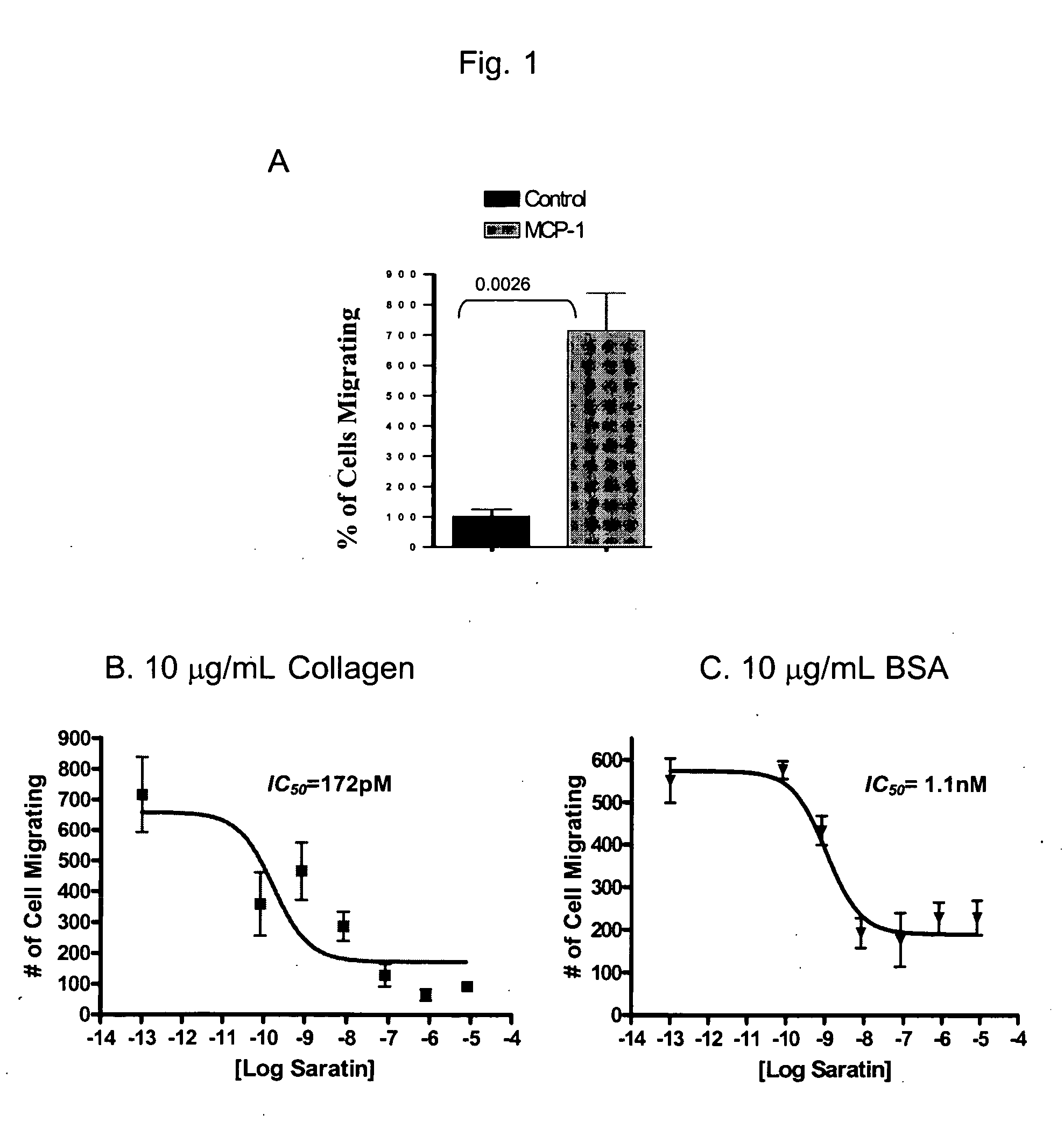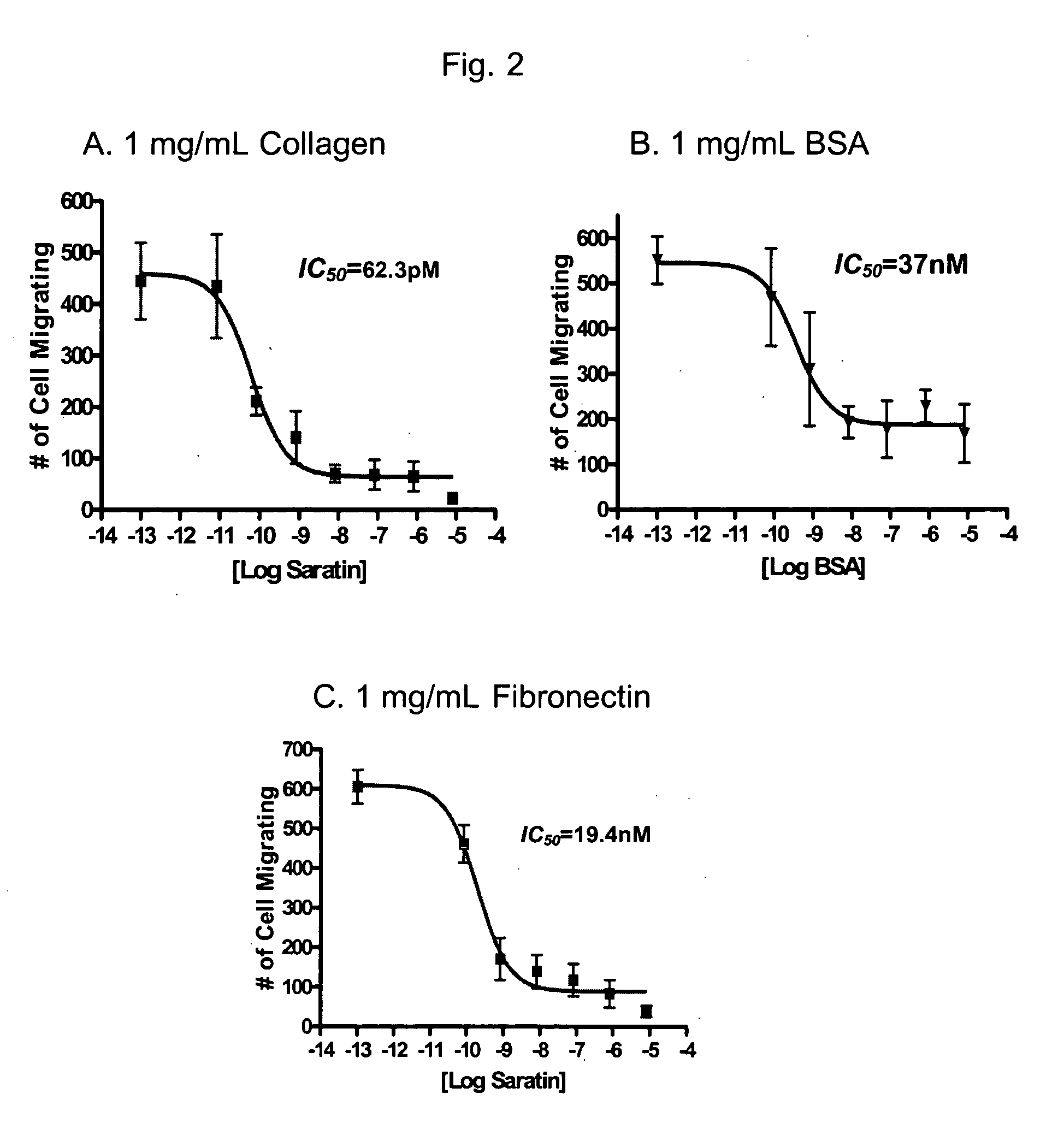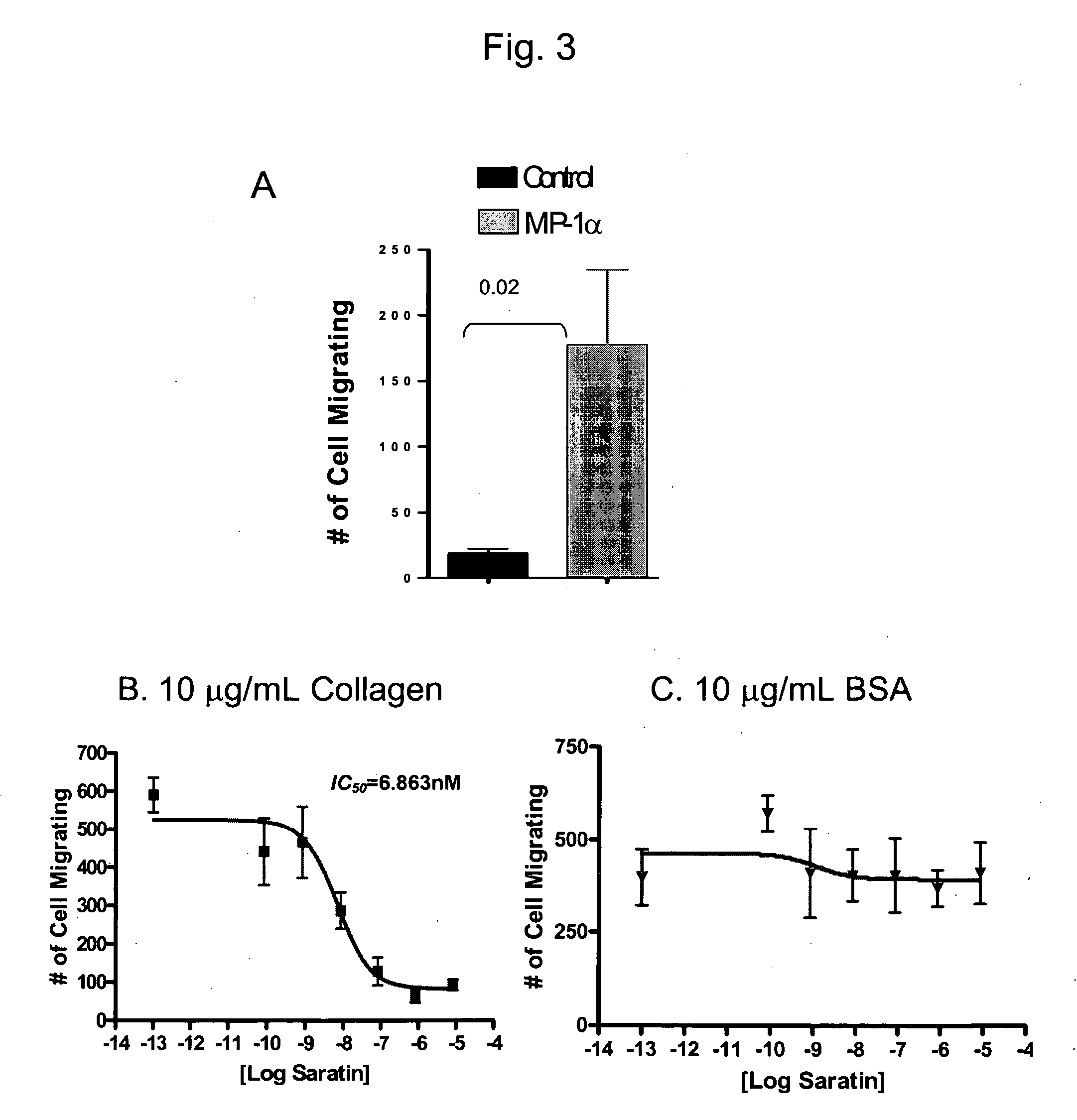Methods and compositions for blocking platelet and cell adhesion, cell migration and inflammation
a technology of cell adhesion and composition, applied in the direction of peptide/protein ingredients, metabolism disorders, prosthesis, etc., can solve the problems of chronic non-healing wounds, excess scarring and fibrotic sequelae, and the biological heterogeneity remains unresolved
- Summary
- Abstract
- Description
- Claims
- Application Information
AI Technical Summary
Benefits of technology
Problems solved by technology
Method used
Image
Examples
example 1
Use of Saratin in a Canine Flexor Tendon Repair Model
[0135] Tendon injury in the finger remains a clinical challenge to hand surgeons. A canine model is commonly used to study biological effects of tendon injuries and their treatment.
[0136] The purpose of this study is to evaluate the effect of saratin on the outcome following flexor tendon repair in an in vivo canine model. Following tendon injury in the canine flexor tendon repair model, saratin is applied in a gel formulation or as a simple liquid at the site of the injury. In a control group, the gel or liquid control (without saratin) is applied. Work of flexion (WOF) and tendon strength is evaluated following tendon laceration and repair in the dogs sacrificed 10 days postoperatively. It is expected that in the dogs treated with saratin, the WOF and tendon strength are greater and there is reduced scarring.
example 2
Saratin Facilitates Wound Healing and Scar Formation
[0137] Mice Model
[0138] The effect of saratin on wound healing is determined in mice. The wounds are produced by fine surgical scissors and consist of 4 mm full thickness skin incisions. A sterile adhesive bandage is used to cover each wound. Following formation of the wound, saratin is applied on the incision. New vessel formation at each wound site is assessed using magnetic resonance microimaging (MRI) on days 0, 1, 2, 3, and 5 after the injury. Treatment with saratin will diminish the massive neovascularization that surrounds the wound on days 1-2 after injury, accelerates wound healing, and minimizes scarring.
[0139] Visual observation of wounds will also provide evidence of the benefits of saratin treatment. The animal treated with saratin will present little evidence of scarring as compared to the control animal at a later time point.
[0140] Wound disruption strength, or tissue tensile strength across a wound, is evaluated...
example 3
Saratin Inhibits MCP-1-Induced Human Monocyte Migration In Vitro
[0147] Monocyte Cell Isolation: Monocytes are isolated from peripheral blood mononuclear cells (PBMC). PBMCs were isolated from the buffy coats (San Diego Blood Bank) by Ficoll-Paque gradient centrifugation. Monocytes were isolated by incubating the PBMCs at 1×107 cells / mL in 100 mm petri-dish for 2 hours and collecting the adherent cells.
[0148] Monocyte Chemotaxis: Monocyte migration was quantified by blind wells Boyden chamber technique. Monocytes were suspended at 1×106 cells / mL in RPMI 1640 plus 0.5% BSA. Two hundred microliter (200 μL) wells containing various concentrations of compound (saratin) were placed in the top wells of Boyden chambers. The bottom wells of the chambers were loaded with 100 ng / mL MCP-1. An 8-μm pore polycarbonate filter was placed between the top wells and the bottom wells. Polycarbonate filters were coated with either 10 μg / mL collagen type IV, 1 mg / mL collagen type IV, 0.01 mg / mL fibron...
PUM
| Property | Measurement | Unit |
|---|---|---|
| Density | aaaaa | aaaaa |
| Density | aaaaa | aaaaa |
| Temperature | aaaaa | aaaaa |
Abstract
Description
Claims
Application Information
 Login to View More
Login to View More - R&D
- Intellectual Property
- Life Sciences
- Materials
- Tech Scout
- Unparalleled Data Quality
- Higher Quality Content
- 60% Fewer Hallucinations
Browse by: Latest US Patents, China's latest patents, Technical Efficacy Thesaurus, Application Domain, Technology Topic, Popular Technical Reports.
© 2025 PatSnap. All rights reserved.Legal|Privacy policy|Modern Slavery Act Transparency Statement|Sitemap|About US| Contact US: help@patsnap.com



